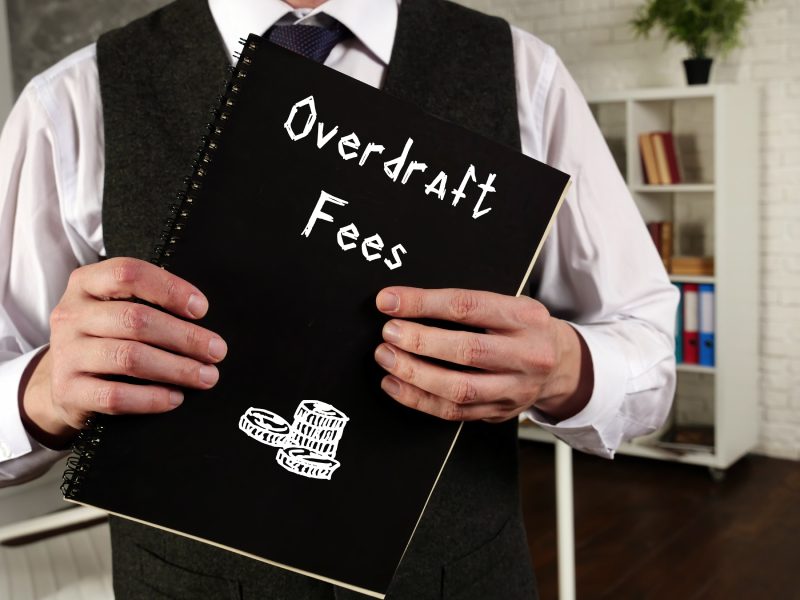Even those of us who make a concerted effort to watch our budgets can sometimes find that our bank accounts are temporarily short of funds when a transaction goes through. It is usually a matter of timing: like, say, if a payment is debited to your account the day before your salary is paid, for example. These short-term cash flow interruptions don’t typically cause much trouble. You can simply make the payment once the funds are available. The main complaint that consumers have in these cases is when their bank or credit union charges them an overdraft or no sufficient funds (NSF) fee. These are two similar, but ultimately, very different types of fees. It is advisable to weigh up overdraft fees vs. NSF fees, understand the differences, and know which of them – if any – can be charged on your accounts, and why.
Overdraft and NSF fees can cause major headaches – especially if there are several transactions involved. The average overdraft or NSF fee is around $30. That is not an insignificant amount of money to just throw away. In some cases, financial institutions charge exorbitant overdraft or NSF fees without the customer’s knowledge and consent, which may lead the latter to take legal action. It is important to understand what fees your bank is permitted to charge you, and don’t allow them to deduct anything to which they do not have a right.
Overdraft vs. NSF Fees
Many consumers make the mistake of thinking that overdraft fees are the same as NSF fees. They are similar in that they are both charged when your account does not have insufficient funds to cover a transaction. However, there is a crucial difference. If you have an overdraft facility on your account, then the transaction will go through even if you don’t have available funds. The bank will then charge you for using this facility. On the other hand, if you do not have an overdraft facility, the transaction will simply be rejected when there are not enough funds. The bank may then charge you an NSF fee.
It is not possible for an overdraft and NSF to be charged simultaneously.
How Do Non-Sufficient Funds Fees Work?
NSF fees are charged when a transaction is returned unpaid due to there not being enough funds in the account. This applies to accounts that do not have overdraft facilities.
How Do Overdraft Fees Work?
The situation with overdrafts is very similar to NSF situations. The main difference is that the transaction will proceed even if you don’t have enough funds. The reason for this is that there is an overdraft facility on that particular account, meaning that the bank essentially advances you a small, short-term loan to cover the transaction. Of course, it charges you a fee for doing so.
What Can You Do About NSF/Overdraft Fees?
Both overdraft fees and NSF fees are entirely legal. Banks are entitled to charge customers for both the credit and/or administrative costs involved with incomplete transactions. However, they must do so in compliance with state and federal regulations. Fees must be disclosed upfront when the customer opens the account. If the bank is ever forced to charge such a fee, the amount must be consistent with what was quoted at the beginning. Assuming that banks are charging these fees correctly, and you have acknowledged and consented to them, there is not much you can do. It is simply advisable to maintain positive balances on your accounts to ensure that your expenses are covered. You should also understand overdraft fees vs. NSF fees and know which ones should be charged, and under what circumstances.
That being said, some banks do resort to unfair practices at times, such as overcharging on NSF or overdraft fees or allowing transactions to go through even if the customer has opted out of the overdraft option (and charging for this service). If you have been hit with overdraft or NSF fees that you deem unfair or questionable, you can seek the advice of an overdraft or NSF fee lawyer. Your overdraft fee lawyer will be able to assess the legality of your bank’s actions and help you take appropriate action. If you find yourself in this situation, contact Shamis & Gentile, P.A. and book a consultation with one of our lawyers.




